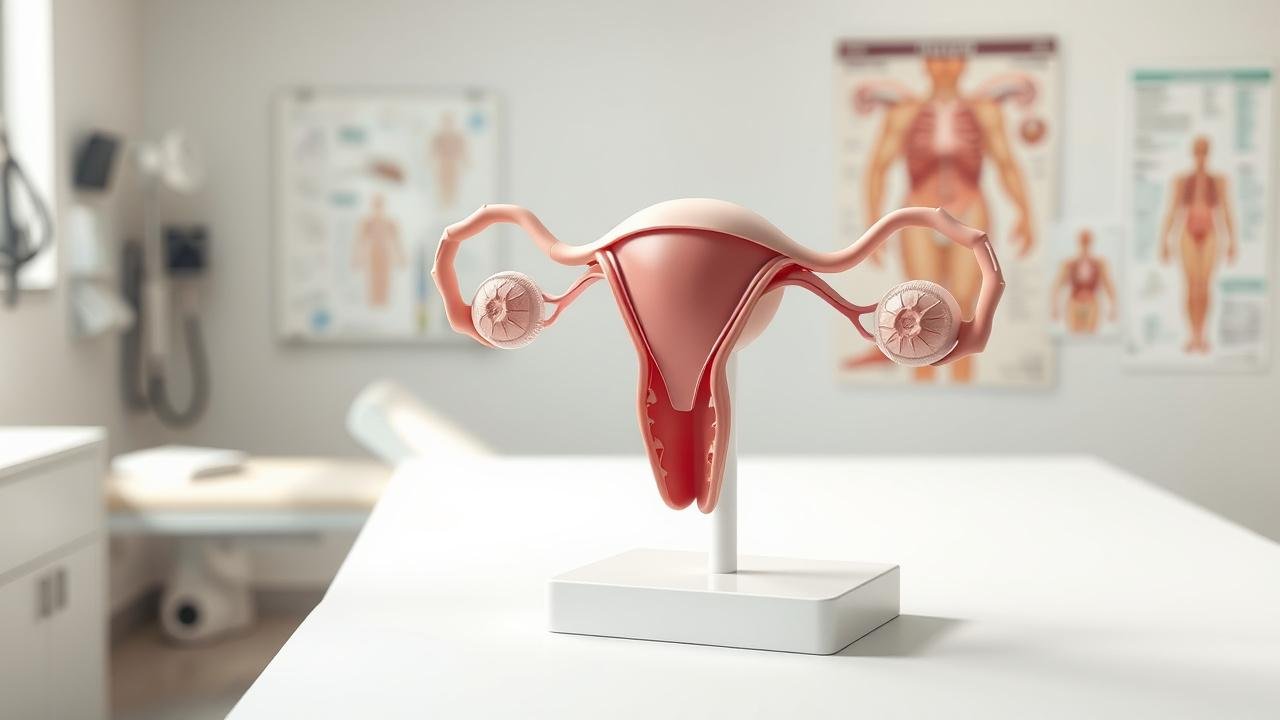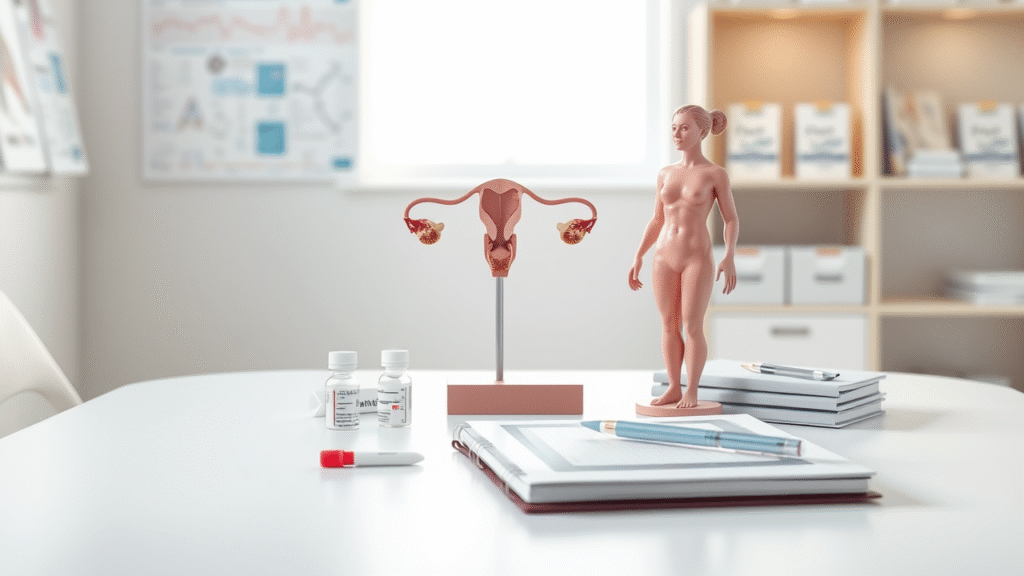Infertility can be a complex and deeply personal challenge for couples trying to conceive. Understanding the common causes involves looking closely at various factors affecting both partners. From male and female reproductive health issues to lifestyle choices and environmental influences, each element plays a crucial role. Age, hormonal imbalances, genetics, and chronic medical conditions also contribute in significant ways. Beyond the physical aspects, emotional and psychological hurdles often accompany this journey. This blog unpacks these interconnected causes to provide a clear picture of what couples may face when navigating infertility together.
Understanding Male Factors Contributing to Infertility in Couples Trying to Conceive
Understanding male factors contributing to infertility in couples trying to conceive is crucial for a comprehensive approach to fertility challenges. Male infertility often stems from issues such as low sperm count, poor sperm motility, or abnormal sperm morphology, which directly affect the ability to fertilize an egg. These conditions can be influenced by lifestyle and environmental factors like smoking, excessive alcohol use, and exposure to toxins—topics further explored in the lifestyle section. Hormonal imbalances in men, similar to those discussed on the female side, also play a significant role by disrupting testosterone levels critical for sperm production. Additionally, genetic abnormalities and immune responses can hinder sperm function or fertilization capacity, linking closely to the genetic and immunological section of the blog. Addressing male infertility alongside female reproductive health issues ensures couples receive balanced care. Medical conditions such as diabetes or chronic illnesses may also impair male fertility, emphasizing how interconnected these themes are throughout the broader discussion on infertility.
Exploring Female Reproductive Health Issues Affecting Fertility in Couples Trying to Conceive

Female reproductive health issues are a significant factor in infertility among couples trying to conceive. Conditions such as polycystic ovary syndrome (PCOS), endometriosis, and uterine abnormalities can disrupt ovulation, hormone balance, and the ability of the uterus to support implantation. These issues often intertwine with hormonal imbalances, highlighting the importance of understanding endocrine function when addressing fertility challenges. Additionally, certain medical conditions and chronic illnesses may exacerbate female reproductive difficulties, making comprehensive evaluation essential. Exploring these health concerns offers insight into how lifestyle and environmental influences might worsen symptoms or delay diagnosis. Recognizing female-specific factors complements knowledge about male contributions to infertility, emphasizing that fertility is a shared journey. Addressing these biological aspects also helps couples navigate emotional hurdles by framing their experience within a broader medical context, promoting informed decision-making and tailored treatment strategies for successful conception.
Lifestyle and Environmental Influences on Fertility in Couples Trying to Conceive
Lifestyle and environmental factors significantly influence fertility in couples trying to conceive, often intertwining with underlying medical or hormonal conditions. Habits such as smoking, excessive alcohol intake, poor diet, and high stress levels can disrupt hormonal balance and reproductive function in both partners, compounding issues discussed in sections on hormonal imbalances and male or female reproductive health problems. Exposure to environmental toxins like pesticides, heavy metals, and endocrine disruptors also plays a critical role by damaging sperm quality or interfering with ovulation. These external influences may accelerate age-related fertility decline or exacerbate chronic illnesses that already impair conception efforts. Understanding how lifestyle choices intersect with genetic predispositions or immunological challenges further highlights the complexity couples face. Addressing these modifiable factors alongside medical interventions can improve outcomes and emotional well-being, connecting closely with the blog’s focus on navigating psychological hurdles during infertility journeys. This comprehensive perspective is essential for couples seeking effective strategies to enhance their chances of conception.
The Impact of Age-Related Fertility Decline on Couples Trying to Conceive

Age-related fertility decline significantly influences couples trying to conceive, often compounding challenges linked to both male and female reproductive health. As women age, the quantity and quality of their eggs diminish, increasing the risk of chromosomal abnormalities and reducing the chances of conception. Men also experience gradual declines in sperm quality and motility with age, which intersects with issues discussed in the section on male factors contributing to infertility. This natural decline can exacerbate hormonal imbalances or amplify underlying medical conditions covered elsewhere in the blog. Moreover, lifestyle choices and environmental exposures may intensify age-related fertility barriers, highlighting connections to other critical sections. Understanding how aging interacts with genetic, immunological, and psychological components helps couples grasp the complex nature of infertility. Addressing these intertwined factors early is crucial for improving outcomes and navigating emotional challenges that often accompany delayed attempts at conception.
Hormonal Imbalances and Their Role in Infertility Among Couples Trying to Conceive
Hormonal imbalances play a crucial role in infertility among couples trying to conceive, often disrupting the delicate endocrine signals necessary for ovulation and sperm production. In women, irregular levels of hormones such as estrogen, progesterone, and luteinizing hormone can hinder egg release or create an inhospitable uterine environment, linking closely to female reproductive health issues. For men, imbalances in testosterone or other hormones may impair sperm quality or count, intersecting with male factor infertility. These hormonal disruptions can also be influenced by underlying medical conditions or chronic illnesses that alter endocrine function. Additionally, lifestyle choices and environmental exposures may exacerbate hormonal irregularities, further complicating fertility efforts. Understanding these hormonal factors is essential when considering age-related fertility decline or genetic influences, as shifts in hormone levels often accompany these conditions. Addressing hormonal health not only supports conception but also helps manage the emotional and psychological stress couples face during their infertility journey.
Genetic and Immunological Factors Affecting Infertility in Couples Trying to Conceive

Genetic and immunological factors play a crucial role in infertility among couples trying to conceive, often interacting with other aspects like hormonal imbalances and reproductive health issues. Genetic abnormalities can affect egg or sperm quality, leading to difficulties in fertilization or early embryo development. Additionally, immune system disorders may cause the body to mistakenly attack sperm, eggs, or even the embryo, hindering successful implantation. These underlying causes are sometimes overlooked compared to more visible lifestyle or age-related fertility challenges but remain essential for a comprehensive diagnosis. Understanding these biological influences complements knowledge about male and female reproductive factors and highlights why some couples face persistent difficulties despite addressing external habits or medical conditions. Integrating insights from genetic and immunological perspectives helps shape personalized treatment plans while acknowledging the emotional strain couples endure during this complex journey toward parenthood.
The Role of Medical Conditions and Chronic Illnesses in Infertility Among Couples Trying to Conceive
Medical conditions and chronic illnesses play a significant role in infertility among couples trying to conceive, often intertwining with other factors like hormonal imbalances and reproductive health issues. Conditions such as diabetes, thyroid disorders, endometriosis, and autoimmune diseases can disrupt ovulation, sperm quality, or the uterine environment, making conception more difficult. These health challenges sometimes overlap with genetic or immunological factors that affect fertility, emphasizing the complex biological interplay at work. Moreover, managing chronic illnesses often involves medications or lifestyle adjustments that may further influence fertility outcomes. Understanding these medical contributors complements insights from sections on male and female reproductive factors while highlighting the importance of holistic care. Couples facing these challenges may also encounter emotional strain, underscoring the relevance of addressing psychological well-being alongside physical health when navigating infertility’s many dimensions.
Navigating Emotional and Psychological Challenges in Couples Facing Infertility
Facing infertility often brings a profound emotional and psychological toll that intertwines deeply with the physical causes explored throughout this blog. Understanding male and female reproductive challenges, hormonal shifts, lifestyle impacts, and underlying medical or genetic factors is crucial, but addressing the emotional strain couples endure completes the picture. This journey tests resilience and partnership in unique ways, reminding us that fertility struggles are as much about heart as they are about biology. Through compassionate awareness and support, couples can navigate these complexities together. At MomDadDispatch.com, empathy and insight stand ready to accompany families on every step of this path.






